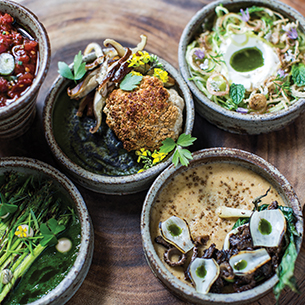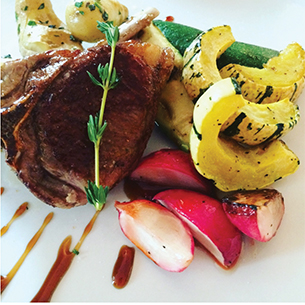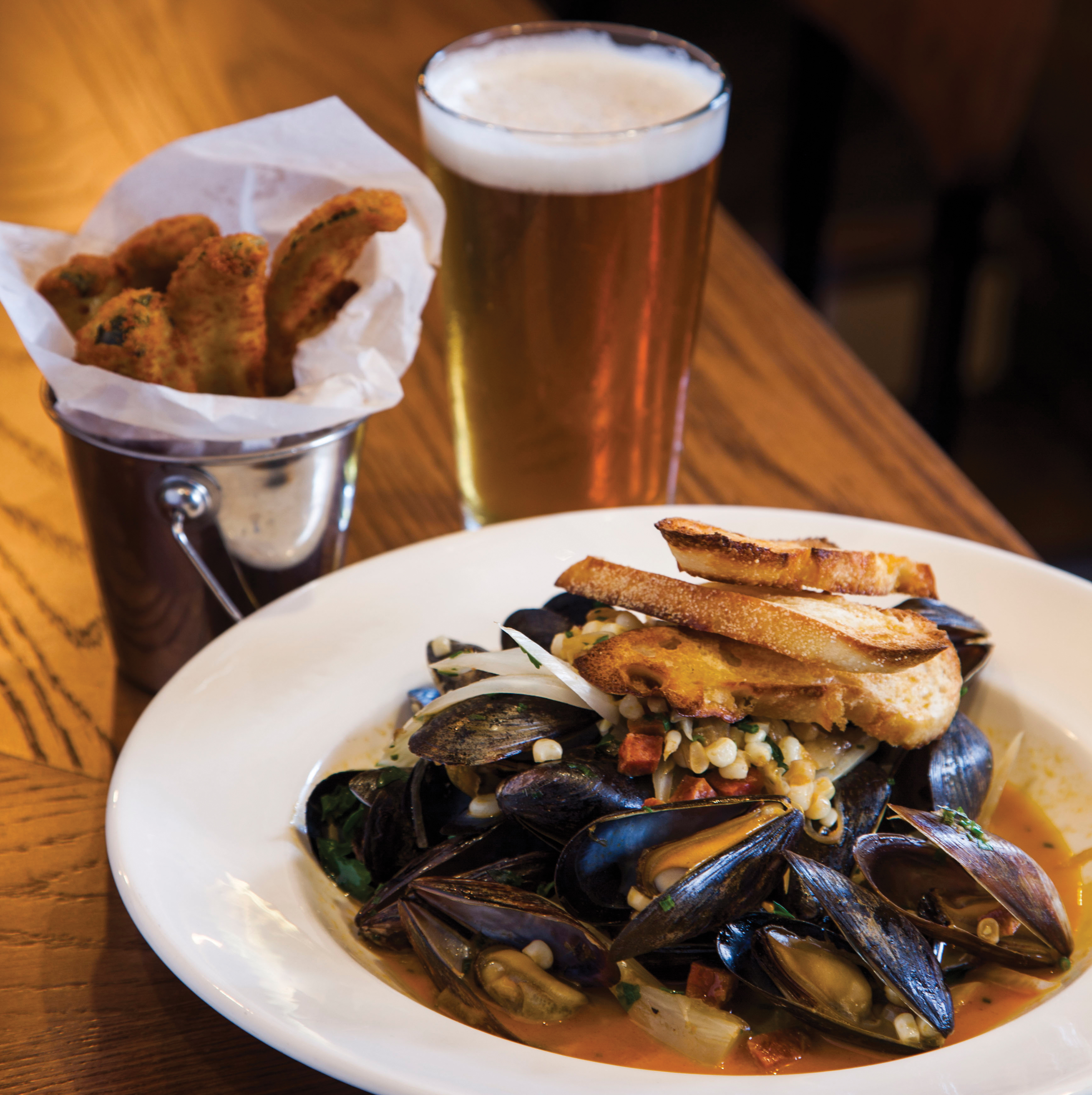
Eating Local
When traveling, it’s easier in some cities to make healthy, sustainable food choices than it is in others. If you’re heading to Austin, Portland, Nashville, or Philadelphia, this road map of restaurants will point you in the right direction.
By Ben Ross

NASHVILLE
Beyond the clichés of hot chicken and honky-tonks, Music City has slowly emerged as a Southern cooking hub of the highest caliber. Heirloom, ingredient-driven cuisine shines at Husk (husknashville.com), a restaurant dedicated to the preservation and sustainability of Southern cooking and land stewardship. Vegan fare has established a home for itself here, with places like The Wild Cow (thewildcow.com) and AVO (eatavo.com) channeling the bold flavors of Nashville through their fresh, plant-based menus and health-conscious alternatives to Southern staples. Crema (crema-coffee.com), named by the Specialty Coffee Association for roasting some of the country’s best-tasting coffee, has committed to the mission of selling the most sustainable (and delicious) coffee possible. For a taste of the heirloom agriculture that feeds this city’s cuisine, the Nashville Farmers Market (nashvillefarmersmarket.org) is the place to be.

AUSTIN
A landmark of the Lone Star State, this food capital is known for its barbecue and Tex Mex, but it’s also making a name for itself in the progressive food movement. Regional agriculture and deep cultural roots support the ample availability of farm-fresh food. Odd Duck (oddduckaustin.com) and Lenoir (lenoirrestaurant.com) are standouts for contemporary Austin cuisine. Both are working to highlight local ingredients and preserve traditional cooking techniques. For plant-based options, there’s Bouldin Creek Cafe (bouldincreekcafe.com), Counter Culture (countercultureaustin.com), and Bistro Vonish (bistrovonish.com), which serve up fresh, vegetable-forward dishes garnering acclaim from vegans and carnivores alike. To dive right into Tex Mex, try the taquerias Vera Cruz All-Natural (veracruzallnatural.com) and Tacodeli (tacodeli.com). You can visit many of the top regional food producers and artisans directly through markets like Barton Creek Farmers Market (bartoncreekfarmersmarket.org) or SFC Farmers Market (sustainablefoodcenter.org).

PORTLAND
Nestled in the heart of the Willamette Valley in the Pacific Northwest, Portland boasts a colorful and eco-friendly food scene, and establishments across the city are ever doubling down on that reputation. In close proximity to plentiful in-land agriculture and coastal ingredients, restaurants like Quaintrelle (quaintrelle.co) and Bethany’s Table (bethanystable.com) focus on flavors that are in season. Others, like Farm Spirit (farmspiritpdx.com) and Fermenter (fermenterpdx.com), bring community agriculture and wellness to the forefront with dynamic, plant-based menus and bold, fermented foods. For comfort-driven, meatless options, try Harlow (harlowpdx.com) for some familiar dishes. Portland is also home to a wealth of small shops, markets, and delis selling sustainable, high-quality food products. The Tao of Tea (taooftea.com) and Heart Roasters (heartroasters.com) center their respective tea and coffee menus around progressive, responsible producers. For a more diverse array of goods, try Portland Farmers Market (portlandfarmersmarket.org), zero-waste grocer NoPac Foods (nopaczerowaste.com), Elephants Delicatessen (elephantsdeli.com), and The Spice & Tea Exchange (spiceandtea.com).

PHILADELPHIA
This historic city has emerged as a big player in America’s evolving food scene, attracting creative, forward-thinking chefs working to push the boundaries of American cuisine and reconnect with the terroir of the region. At White Dog Cafe (whitedog.com), traditional Philly flavors are channeled through the freshest local ingredients to produce an ambitious, eco-friendly menu. Meanwhile, plant-based eateries like Vedge (vedgerestaurant.com) and Pure Sweets (puresweets.com) are serving up bold, classic, comforting flavors, shaking up norms, and paving the way for a new wave of vegan and vegetarian restaurants. Headhouse Farmers Market (thefoodtrust.org) and Riverwards Produce (riverwardsproduce.com) draw on the region’s farming and artisan traditions to supply both restaurants and neighborhoods with produce, baked goods, meats, cheeses, flowers, and more.




